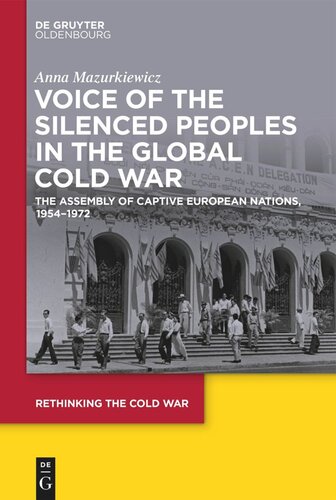

Most ebook files are in PDF format, so you can easily read them using various software such as Foxit Reader or directly on the Google Chrome browser.
Some ebook files are released by publishers in other formats such as .awz, .mobi, .epub, .fb2, etc. You may need to install specific software to read these formats on mobile/PC, such as Calibre.
Please read the tutorial at this link: https://ebookbell.com/faq
We offer FREE conversion to the popular formats you request; however, this may take some time. Therefore, right after payment, please email us, and we will try to provide the service as quickly as possible.
For some exceptional file formats or broken links (if any), please refrain from opening any disputes. Instead, email us first, and we will try to assist within a maximum of 6 hours.
EbookBell Team

5.0
78 reviewsAccording to its members, exiled political leaders from nine east European countries, the ACEN was an umbrella organization—a quasi-East European parliament in exile—composed of formerly prominent statesmen who strove to maintain the case of liberation of Eastern Europe from the Soviet yoke on the agenda of international relations.
Founded by the Free Europe Committee, from 1954 to 1971 the ACEN tried to lobby for Eastern European interests on the U.S. political scene, in the United Nations and the Council of Europe. Furthermore, its activities can be traced to Latin America, Asia and the Middle East. However, since it was founded and sponsored by the Free Europe Committee (most commonly recognized as the sponsor of the Radio Free Europe), the ACEN operations were obviously influenced and monitored by the Americans (CIA, Department of State).
This book argues that despite the émigré leadership's self-restraint in expressing criticism of the U.S. foreign policy, the ACEN was vulnerable to, and eventually fell victim of, the changes in the American Cold War policies. Notwithstanding the termination of Free Europe’s support, ACEN members reconstituted their operations in 1972 and continued their actions until 1989. Based on a through archival research (twenty different archives in the U.S. and Europe, interviews, published documents, memoirs, press) this book is a first complete story of an organization that is quite often mentioned in publications related to the operations of the Free Europe Committee but hardly ever thoroughly studied.